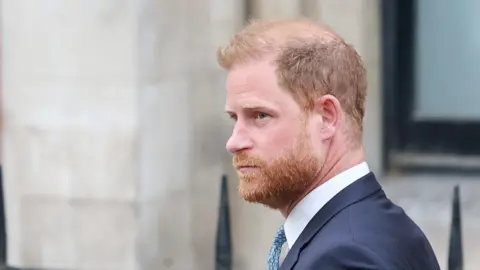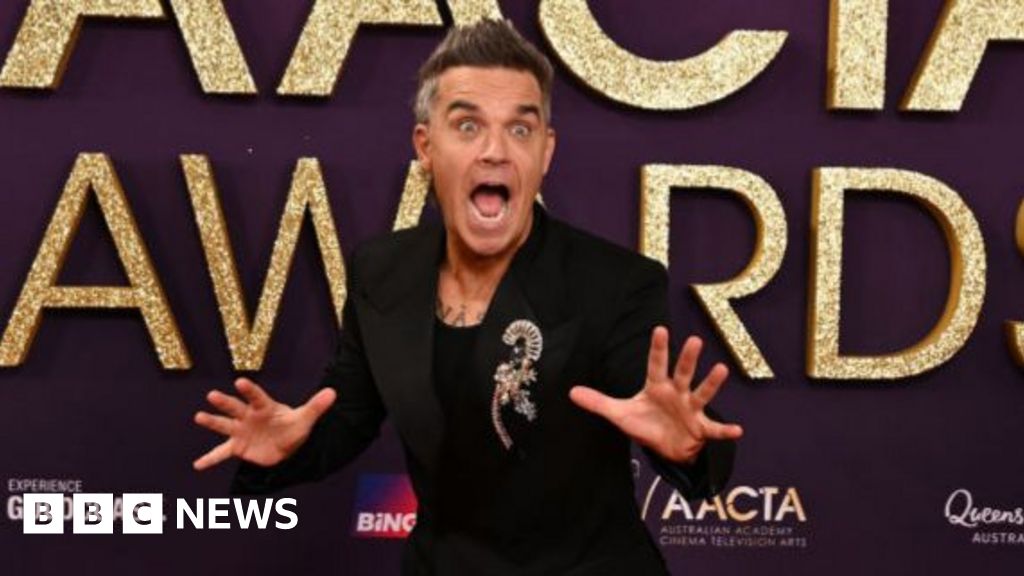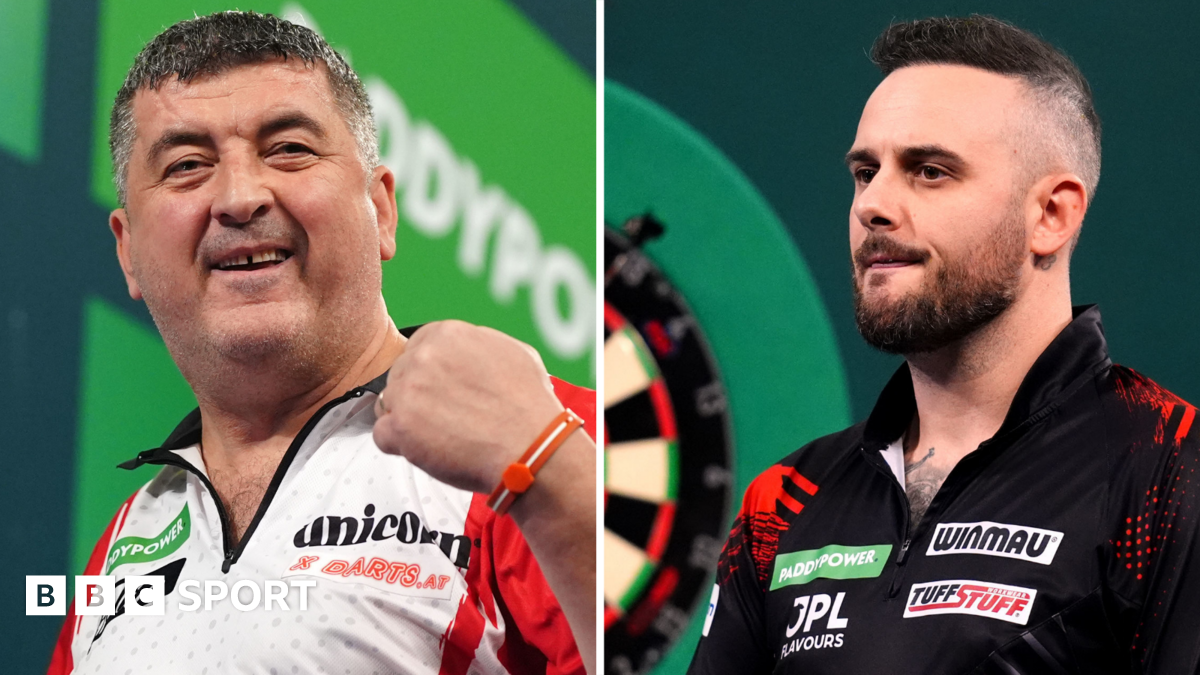Dominic Casciani
Home and legal correspondent•@BBCDomC

 Reuters
Reuters
Prince Harry lost his appeal against the government's decision to remove his police protection
Three weeks after Prince Harry's dramatic court loss, any likelihood of him reviving the legal battle over his personal security arrangements is narrowing by the day.
His anger and hurt at how he feels his family's security was seemingly lessened, after he stepped back from working royal duties, has played out publicly - and earlier this month he lost his challenge at the Court of Appeal in London.
In a week's time, the deadline passes for Prince Harry - the Duke of Sussex - to try one last go, at the Supreme Court. But that seems unlikely after he told the BBC, in his exclusive interview after losing, he had no legal options left.
And even if he were to ask for a hearing, the chances of him getting one appear slim because of what the courts have said so far.
While the prince's complaint was about his treatment, ultimately the courts took no view on that. Instead, they ruled he had not understood how the body organising Royal Family protection worked - and how his decision to quit the UK, yet still have an "in-and-out" role in public life, was exceptional.
One former senior judge, who was not involved and spoke on background, felt the prince's case had been "preposterous" and "hopeless" from the start and anyone else bringing such a flawed claim would have been on the receiving end of more critical language from the courts.
However, Prince Harry's argument was always wider - saying the state had to take into account the accident of his birth which made him a target.
"I was born into this position. I was born into those risks. And they've only increased over time," he said in the BBC interview.
At his first court hearing, in 2023, the prince said the UK was a place where he wanted his children "to feel at home" - but argued that can't happen "if it's not possible to keep them safe".
After losing his appeal, he said he "[couldn't] see a world in which I would be bringing my wife and children back to the UK".
Harry's entire legal case centred on Ravec - which authorises security for senior royals on behalf of the Home Office, and which Harry believes unfairly treated him.
So, to understand why he lost and seemingly has nowhere else to go, we first have to understand three key issues:
- Why was Ravec created, and what is its specific role?
- How did Ravec and the Home Office respond when Prince Harry quit as a front line royal?
- Why did he think this was something the courts should solve?
Tabloid stunt
Ravec evolved out of a 2003 Daily Mirror stunt when one of its reporters blagged his way into a job as a Buckingham Palace footman.
It led to panic in government - and a major review concluded royal security needed a jolt.
So Ravec was born - the Royal and VIP Executive Committee (its exact name has changed down the years).
Ravec oversees security for key public figures by assessing risks from terrorism, extremism, stalkers and any other foreseeable threat such as a "fixated individual". Unsurprisingly, there is no public list of who gets protected.
It is responsible for VIP security within England, Wales and Scotland.
The committee is funded and overseen by the Home Office because its work is on behalf of the home secretary of the day.
The Royal Household has two members on the committee, including the monarch's private secretary. They contribute what they think is needed to protect people and key locations, such as Buckingham Palace.
The Metropolitan Police feeds information into the intelligence assessment and, ultimately provides the officers and kit to protect each "principal" - protected person.
But crucially, it's the Home Office-appointed chair who must decide how to spend the money and justify it to government.
Behind closed doors
Part of Prince Harry's case was heard in private, behind closed court doors, to ensure Ravec's precise workings and its security plans remain confidential.
We learned Ravec's decisions typically draw on a report from the Risk Management Board (RMB), a Home Office panel pulling together all the facts about risks and actual threats.
So, in the example of the prince, it is well-known that al-Qaeda supporters and racist extremists are a concern for his family. We can therefore infer that the RMB has probably tried to work out what those threats really amount to.
That's the background. Let's turn to how it all became such a public row, leading from the High Court to the Court of Appeal.
The critical decisions were in spring 2020 when Prince Harry and his wife, Meghan, the Duchess of Sussex, "stepped back" from being working royals.
Their choice to move first to Canada, with their baby son, raised a question for Ravec: what kind of security should the prince's family now have, if they were no longer working royals and no longer living in the UK? What role should Ravec play in providing security, given its GB-only remit?
Court documents, while heavily redacted in places, show emails and letters were flying backwards and forwards between the Home Office, the Palace, Scotland Yard - and ultimately Prince Harry's team.
Ravec ruled out very early on allowing the Sussexes to pay the Met to deliver their security abroad. That, it said, was not what Ravec was for. Its task was to protect working royals in GB.
The government quickly formed the view that the couple would "essentially become private citizens" living abroad - and relations began to break down on 28 February 2020.
Ravec's then-chair, Sir Richard Mottram, told the late Queen's private secretary Sir Edward Young that the Duke and Duchess of Sussex would lose their existing Met protection.
Sir Richard wrote: "The future arrangements for [the duke and duchess] do not fit readily within this framework."
It was that simple: the Sussexes were moving overseas, outside of Ravec's duties.
The consequence was Prince Harry felt he was also being stripped of security when returning home - and there had been no formal Ravec meeting to decide his future protection.
In essence, he seemed to be arguing that the Royal Household's two members of the committee - which at the time included Sir Edward - may have influenced the Home Office's decision to reduce his security.
In his BBC interview, Harry asked "What is the Royal Household's role [on Ravec]… if it isn't to influence and decide what they want for the members of their household?"
But suspecting something is afoot is a world away from proving in court it really is.
In fact, the government successfully argued in court that Ravec had thought carefully and fairly about what to do.
After the duke and duchess had quit the UK, the committee carried out some threat risk assessments and then committed to decide on the duke's security at home on a case-by-case basis.
It meant he would, in principle, potentially get at least some Met Police protection if Ravec thought the circumstances of his visit home warranted it. While living abroad, however, the royal couple would have to fund their own security.
Ravec asked Prince Harry and his private security advisers for 28 days' notice of planned returns so it could work out what the state should provide.
This notice condition is one of the reasons why the prince says his security had been downgraded. Essentially, he feared he would get a fuller security detail if he were attending a grand royal occasion at home than if he were returning on his own private business.
Prince Harry says he can't see a world where his wife and children will visit the UK and asks for reconciliation with his family
The first test was when he flew in for the funeral of his grandfather, the Duke of Edinburgh, in April 2021.
Prince Harry was offered personal protective security - but outside of the Ravec system. The prince regarded this to be insufficient, in light of the risks he believed he faced.
His opinion was strengthened two months later when he said he had been dangerously hounded by paparazzi in New York after a charity event.
In evidence, his security adviser noted the paparazzi's role in chasing Princess Diana to her death in a Paris tunnel.
The prince was convinced he had been treated unfairly and launched his Judicial Review of whether Ravec had acted unlawfully.
To win his case, Prince Harry had to land one of three legal arguments:
- Ravec had acted unlawfully, beyond the powers it had
- The committee had treated him unfairly in the way it had acted
- Its decision was so irrational that nobody else sensible could possibly have reached the same conclusion
The prince's team did so by arguing Ravec's policy had been overly rigid and inflexible. That failed - but there were other lines of attack:
- The committee chairman had not followed Ravec's policies properly
- The decision over the prince's future security had lacked transparency and consultation
- No other decision-maker could have come up with the same bespoke plan he was offered
Yet, all of these complaints were rejected by judges.
Legal cul-de-sac
In Judicial Reviews, it's not the role of judges to say what they would prefer to have happened. So, they never expressed a view whether Prince Harry deserved 20 or 250 more protection officers.
Mr Justice Lane, who legally demolished the prince's case a year ago in the High Court, said Ravec's chair and the Home Office officials who came up with the bespoke plan, had done so from "positions of significant knowledge and expertise in the highly specialist area".
"Courts should be wary of concluding that expert adjudicators have fundamentally misunderstood how to go about their allotted tasks," he said.
The prince's team, who argued his military service heightened the risks he faced, said that he had been treated unfairly compared with another Ravec-protected VIP whose life had changed.
We don't know who that was but it's common knowledge that former prime ministers can be protected long after they have left office. That's partly to ensure that decisions they take while in government - such as declaring war - are not affected by them worrying about their own personal future safety.
The prince appealed the judgement, going to the Court of Appeal. It ultimately ruled it was "superficial" to compare Prince Harry's circumstances with other VIPs.
So, was there something that the courts could not see - the whiff of an "establishment stitch-up" that meant the process was unfair?
Prince Harry told the BBC: "My representative on the Ravec committee, still to this day, is the Royal Household. I am forced to go through the Royal Household and accept that they are putting my best interests forward."
But that complaint was a legal cul-de-sac because the High Court said the prince had no evidence Ravec members had a "closed mind" or had been biased against him.
What about his complaints about reckless paparazzi following his vehicle? Did he not have a case there? In a word, no. Ravec's job was to protect VIPs from people with "hostile intent", not photographers breaching his privacy.
The High Court ultimately described some of his submissions as having a "distinct air of unreality". This is wording judges use when they have been really unimpressed with what they have heard - but don't want to sound rude.
Sir Geoffrey Vos, the senior judge who oversaw the later review in the Court of Appeal, put it differently and diplomatically.
Nobody could have been failed to be moved by Prince Harry's concerns, he said, but he needed to hear why the prince thought Ravec was breaking the law by giving him a bespoke security plan.
"I have tried to see how and whether the Claimant's sense of grievance translates into a legal argument," he explained. But he couldn't find that legal argument. And so, Prince Harry lost.
Five years of anguished legal battles came down to a difficult disagreement - but not one that the courts could find amounted to a "stitch-up".
.png)
 6 months ago
25
6 months ago
25








 English (US) ·
English (US) ·